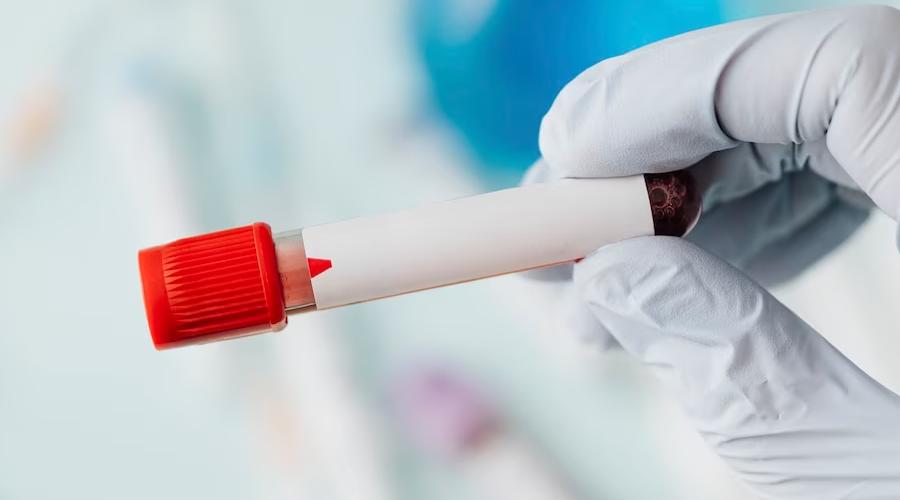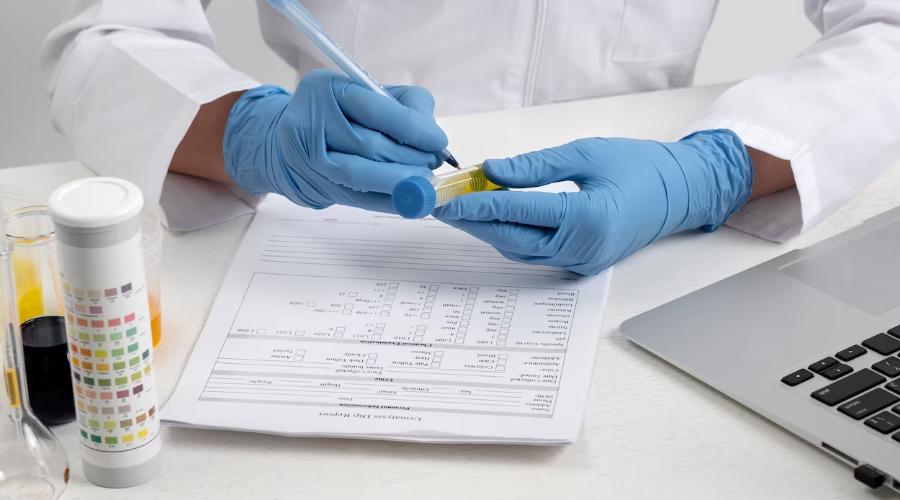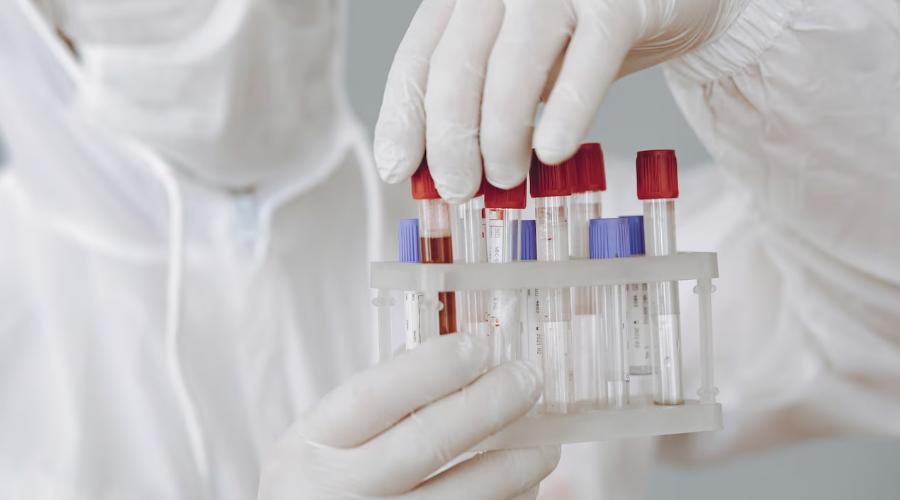
Human Papillomavirus (HPV) is one of the most common sexually transmitted infections globally, affecting millions. Despite its prevalence, many individuals may not even realize they are infected, as HPV often presents without noticeable symptoms. The lack of regular STD testing in North Haven, CT, can exacerbate the spread of the virus, leading to potential complications. Let’s delve into the complexities of HPV and discuss why getting STD testing in North Haven, CT, is essential to combat its prevalence.

HPV, or Human Papillomavirus, is a viral infection transmitted through sexual contact, including genital, anal, or oral sex. It encompasses a group of more than 100 related viruses, with some strains, considered high-risk for causing various cancers, including cervical, vaginal, vulvar, anal, and throat cancer. Other strains are responsible for genital warts. One of the significant challenges in addressing HPV is that it often remains asymptomatic, leading to its unknowing spread from person to person. Regular STD testing in North Haven, CT, is vital to detect and manage the infection promptly.
HPV can manifest without any visible symptoms, making it difficult for individuals to realize they are infected. In cases where symptoms do appear, they may include genital warts, which are flesh-colored growths or bumps in the genital or anal area. These warts may be flat or raised and can cause itching, discomfort, or pain. However, most individuals with HPV show no visible signs, making regular STD testing in North Haven, CT, all the more crucial.
Genital warts are one of the visible manifestations of certain low-risk strains of HPV. These warts appear as small, flesh-colored growths or bumps in the genital or anal area. They can vary in size and shape and may occur in clusters or as single growths. Genital warts can be raised or flat and have a distinct appearance, often resembling tiny cauliflowers. While they are usually painless, they can cause itching, discomfort, and emotional distress due to their location and association with sexual activity. Genital warts are highly contagious and can spread through skin-to-skin contact during sexual activities. Although they can be treated, the virus is not curable, making prevention through safe sexual practices and vaccination essential.
Common warts are another type of wart caused by various strains of HPV. These warts typically appear on the hands, fingers, or around the nails. They are rough and firm, with a raised, grainy texture. Common warts are often flesh-colored, but they can also be darker and have black dots, which are tiny blood vessels that feed the wart. These warts can be bothersome, especially in areas prone to friction or pressure, such as the fingers or soles of the feet. While common warts are generally harmless and can go away independently, some individuals may seek STD testing in North Haven, CT, and treatment to expedite their removal and prevent them from spreading to other areas or people.
Plantar warts are a type of wart that develops on the soles of the feet. These warts can be painful due to the pressure applied to the foot while walking or standing. They may appear flat and flesh-colored, with a rough surface, and are often surrounded by callused skin. Plantar warts can be mistaken for corns or calluses, but they have a distinct appearance upon closer examination. These warts are more prevalent in individuals with weakened immune systems or those who walk barefoot in public places like swimming pools or locker rooms. While plantar warts can resolve independently, they may persist for an extended period, causing discomfort. Accurate STD testing in North Haven, CT for proper diagnosis and treatment may be sought to alleviate pain and promote faster resolution.
Flat warts, also known as plane warts, are small, smooth warts that tend to appear in large numbers on the face, neck, hands, or legs. Unlike common warts, they have a flat, slightly raised surface and are often flesh-colored. Flat warts are more common in children and teenagers, and they can spread easily through shaving or scratching, making them more challenging to control. While flat warts are generally harmless, they can be a cosmetic concern for some individuals, especially when they occur in visible areas. STD testing in North Haven, CT, may be required to distinguish a common flat wart from an HPV-caused wart. Treatment options for flat warts may include topical medications or minor in-office procedures to remove warts.
One of the most concerning aspects of HPV is asymptomatic infection. Most people infected with HPV show no visible signs or symptoms, which means they may not even be aware that they are carrying the virus. Asymptomatic individuals can unknowingly transmit the infection to their sexual partners, leading to the potential spread of HPV within the population. Regular STD testing in North Haven, CT, including HPV testing, is crucial to identify asymptomatic infections and prevent further transmission. Early detection of HPV can also help healthcare professionals implement appropriate preventive measures and closely monitor any potential complications, such as abnormal cervical changes.
While many HPV infections resolve on their own without causing harm, certain high-risk strains can lead to severe complications if left untreated. Persistent infections with high-risk HPV strains can lead to the development of abnormal cells. Early detection through STD testing in North Haven, CT, can help prevent cancer progression by allowing for timely intervention and monitoring.
Cervical cancer is one of the most serious and life-threatening complications of untreated HPV infections, particularly those caused by high-risk HPV strains. Persistent infection with these high-risk strains can lead to the gradual development of abnormal cells in the cervix. Over time, these abnormal cells may become cancerous, resulting in cervical cancer. If left untreated or undetected, cervical cancer can advance to advanced stages, spreading to nearby tissues and organs and potentially metastasizing to distant body parts. Symptoms of cervical cancer may include abnormal vaginal bleeding, pelvic pain, pain during sexual intercourse, and unexplained weight loss. Regular STD testing in North Haven, CT, is crucial in detecting and managing HPV infections, as early detection of abnormal cervical changes through Pap smears can lead to timely interventions and prevent the development of cervical cancer.
RRP is a rare but severe complication of HPV, particularly in children. It is caused by the presence of HPV in the respiratory tract, leading to the growth of benign tumors in the airways, larynx, and vocal cords. These tumors can cause breathing difficulties, voice changes, and recurrent respiratory infections. RRP can be challenging to treat and may require surgical interventions to remove the tumors.
High-risk HPV strains, particularly HPV 16, are strongly associated with oral and throat cancers. Untreated HPV infections can lead to cellular changes in the oral cavity and throat, contributing to the development of cancerous lesions. Oral and throat cancers can cause symptoms such as persistent sore throat, difficulty swallowing, hoarseness, and visible lumps in the neck.
Untreated HPV infections can increase the risk of anal cancer, particularly in individuals with persistent high-risk HPV infections. Anal cancer may cause symptoms such as anal bleeding, pain or discomfort, itching, and changes in bowel habits. It can be a challenging condition to diagnose and treat, especially if detected at an advanced stage. Regular STD testing in North Haven, CT, can help identify and manage HPV infections, reducing the risk of developing anal cancer. For individuals with high-risk HPV infections or other risk factors, routine screenings and close monitoring can aid in the early detection of any abnormal changes in the anal region, facilitating timely intervention and improving health outcomes.

Unfortunately, there is no cure for HPV. However, treatment options are available to manage the symptoms and complications associated with the infection.
For individuals with visible genital warts, several treatment options are available to manage the symptoms and promote resolution. These treatment methods aim to remove or destroy the warts, reducing discomfort and minimizing the risk of transmission. Common treatment approaches include topical medications containing imiquimod or podofilox, which can be applied directly to warts. Additionally, healthcare professionals may perform cryotherapy (freezing warts), electrocautery (burning warts), or surgical removal to eliminate larger or persistent warts.
Cervical dysplasia refers to abnormal cells in the cervix, often detected through Pap smears, one of the methods for STD testing in North Haven, CT, for HPV. The management of cervical dysplasia aims to prevent the progression of abnormal cells to cervical cancer. Treatment options depend on the severity of the dysplasia and may include watchful waiting, repeated Pap smears for monitoring, or procedures such as a colposcopy with or without a cervical biopsy. In some cases of moderate to severe dysplasia, a loop electrosurgical excision procedure (LEEP) or a cone biopsy may be necessary to remove the abnormal cells and prevent further progression.
In cases with no visible symptoms or immediate complications, healthcare professionals may opt for a “watch and wait” approach. Regular monitoring and surveillance are essential for individuals with HPV, especially those with high-risk strains. Frequent Pap smears or STD testing in North Haven, CT, can help detect changes in cervical cells or identify persistent infections, allowing for early intervention if needed.
For individuals experiencing discomfort or pain due to HPV-related conditions, pain management techniques may be employed. Over-the-counter pain relievers, such as acetaminophen or ibuprofen, can help alleviate mild to moderate pain. In cases of more severe pain, healthcare professionals may prescribe stronger pain medications for short-term use.
While HPV cannot be cured, preventive measures can be crucial in managing the infection and reducing its impact. The HPV vaccine is highly effective in preventing infections with certain high-risk HPV strains responsible for cervical and other cancers and low-risk strains causing genital warts. Vaccination is recommended for both males and females before becoming sexually active. Additionally, getting regular STD testing in North Haven, CT, and practicing safe sexual behaviors, such as consistent condom use and limiting the number of sexual partners, can reduce the risk of HPV transmission.
Fighting against the prevalence of HPV requires a multi-faceted approach. Promoting awareness about HPV, its transmission, and the importance of STD testing in North Haven, CT, is crucial.
One of the most effective ways to prevent HPV infections is through vaccination. The HPV vaccine is safe and highly successful in protecting against certain high-risk HPV strains responsible for cervical, vaginal, vulvar, anal, and throat cancers, as well as low-risk strains causing genital warts. Vaccination is recommended for males and females before becoming sexually active, ideally during early adolescence. The vaccine is most effective when administered before any potential exposure to the virus, making it an essential preventive measure.
Practicing safe sexual behaviors can significantly reduce the risk of HPV transmission. Consistent and correct use of condoms during sexual activity can provide a degree of protection against HPV and other sexually transmitted infections. Reducing the number of sexual partners can also lower the risk of exposure to HPV and other STIs.
Regular STD testing in North Haven, CT, including HPV testing, is crucial for sexually active individuals. Early detection of HPV infections can facilitate timely medical intervention and management, preventing the spread of the virus to sexual partners and reducing the risk of complications. Regular screenings are especially important for individuals with multiple sexual partners or those engaged in high-risk sexual behaviors.
Regular cervical cancer screenings, such as Pap smears and HPV tests, are vital for detecting abnormal cervical changes caused by high-risk HPV strains. Cervical cancer screenings can help identify precancerous lesions or early-stage cancer, allowing for prompt medical intervention and better treatment outcomes.
Promoting awareness about HPV is essential in combating its prevalence. Public health campaigns and educational programs can help dispel myths, raise awareness about HPV-related conditions, and emphasize the importance of preventive measures such as vaccination and regular STD testing in North Haven, CT. Educating individuals about the availability and benefits of the HPV vaccine can encourage higher vaccination rates and reduce HPV transmission.
For individuals at higher risk of HPV infection or complications, such as those with weakened immune systems or a history of abnormal cervical changes, vaccination can offer an additional layer of protection. Consultation with healthcare professionals in North Haven, CT, can help determine whether vaccination is suitable and beneficial for these individuals.
Encouraging open and honest communication about sexual health and HPV with sexual partners is crucial. Discussing HPV and other STIs and previous vaccination status can help make informed decisions about preventive measures and healthcare choices.

Regular STD testing in North Haven, CT, including HPV testing, is essential for sexually active individuals in North Haven, CT. Healthcare professionals at centers of STD testing in North Haven, CT, can provide accurate diagnoses, offer appropriate counseling, and recommend the most suitable treatment or preventive measures.
HPV infections can often be asymptomatic, meaning individuals may not know they are carrying the virus. Regular STD testing in North Haven, CT, can help detect infections early, even before visible symptoms or complications arise. Early detection allows for timely medical intervention and management, reducing the risk of transmitting the virus to sexual partners and preventing potential complications.
Certain high-risk HPV strains can lead to severe complications, such as cervical cancer and other cancers affecting the genital and anal regions. Regular STD testing in North Haven, CT, along with appropriate follow-up and management, can help prevent these complications by identifying abnormal changes in cervical cells or detecting persistent infections in high-risk individuals.
By STD testing in North Haven, CT, for HPV, individuals can take responsibility for their sexual health and well-being. Regular testing contributes to individual health and is crucial in promoting public health by reducing the spread of HPV and related conditions.
Healthcare professionals at centers of STD testing in North Haven, CT, can offer appropriate counseling and guidance regarding HPV, its transmission, prevention, and available vaccination options. They can address any concerns or misconceptions, helping individuals make informed decisions about their sexual health.
HPV testing results can guide the implementation of personalized preventive measures. For individuals with negative results, healthcare professionals may recommend the HPV vaccine to protect against future infections. For those with positive results on their STD testing in North Haven, CT, healthcare professionals can offer close monitoring and follow-up care to manage any potential complications effectively.
Regular STD testing in North Haven, CT, can provide peace of mind, knowing that one is actively taking steps to monitor their sexual health and prevent potential risks associated with HPV infections. It empowers individuals to be proactive about their well-being and take control of their sexual health.
Being aware of one’s HPV status through regular STD testing in North Haven, CT, helps protect sexual partners from potential transmission. Taking responsibility for one’s sexual health can foster open and honest communication with partners, encouraging discussions about preventive measures and ensuring mutual protection.
HPV is a prevalent sexually transmitted infection with potential complications if left untreated. The lack of noticeable symptoms underscores the importance of regular STD testing in North Haven, CT, to detect and manage the infection. Awareness, education, and proactive STD testing play pivotal roles in combating the prevalence of HPV and promoting overall well-being.
Grab your STD test results within 20 minutes! Contact DOCS Urgent Care & Primary Care – North Haven now for a quick and accurate STD test to check your sexual health. Let DOCS Urgent Care & Primary Care – North Haven guide you to a happier and healthier life.

During this surge in COVID-19 cases, our primary focus is meeting the high demand for tests, and we are seeing higher than usual wait times. This means we are unable to answer most phone calls. Please know that our teams are working very hard during this time to care for as many patients as safely as possible. Please click the button below for answers to common questions. We appreciate your understanding.